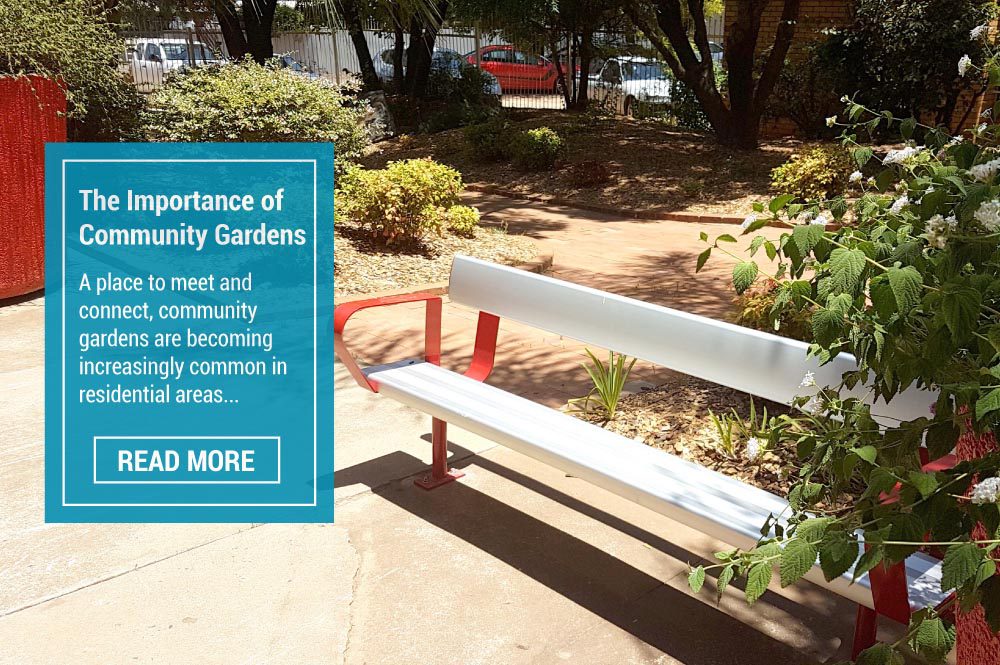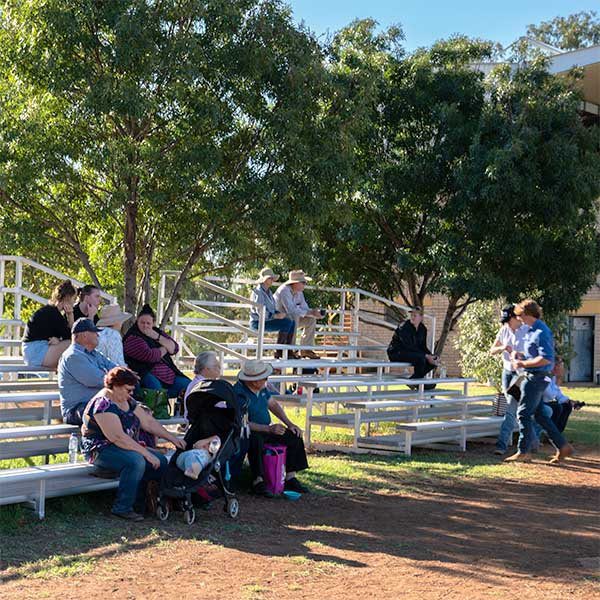
The importance of community gardens
A place to meet and connect, community gardens are becoming increasingly common in residential areas, and with a range of environment, health, and social benefits it’s no surprise why. There is no formal definition of what constitutes a community garden; however, it is often regarded that a community garden is either a shared plot of land or garden managed by a group of people. These gardens can exist on either public or private land, and take place either within communities, neighbourhoods or on the grounds of institutions such as churches, schools, parks and within hospitals.
Some that can be enjoyed in your community gardens are conversation, enjoying nature, learning about produce and taking home spare vegetables or items from share tables.
Social Benefits
Community and belonging are two sides of the same coin, and with a common shared community a sense of belonging amongst individuals is fostered. Community gardens provide a combined activity of growing and caring for collective gardens. Within councils, churches, prisons, and hospitals these gardens encourage individuals to build friendships and partnerships within their communities. For areas prone to higher rates of crime, community gardens have even in some instances been associated with reduced crime rates.
Whilst green spaces are known to offer physical health benefits, this shared space also acts as a booster to improve community health. Gardens give opportunities for skill development, building important local social networks, offer an outside space to contribute to and enjoy, and for younger members of the community even develop skills to help with employment opportunities.
Environmental Benefits
Globally there have been efforts to plant more trees, with the overarching sentiment being the greener the better. And whilst national efforts are televised, green can also begin in your local school or churchyard.
In urban areas with heavy infrastructure, having community gardens improves air quality by increasing the presence of oxygen and reduces urban heat island impact, helping to keep urban temperatures slightly cooler. For areas with lower grade soil quality, community gardens have additional benefits such as increasing carbon sequestration, reducing stormwater runoff and improving soil water-holding capacity. Green spaces also encourage wildlife to frequent the area, with flowers and attracting key pollinators like insects and birds to frequent the area.
Health Benefits
Community gardens promote healthy dietary habits through increased education about nutritious foods, that can be grown in local gardens. Forming healthy dietary habits can help reduce the risk of obesity and related diseases. Through providing fresh and nutritious foods, incidents of hunger are also reduced, alleviating the presence of malnutrition in disadvantaged and marginalised communities. Plus, a study published in the Journal of Public Health found that working in a garden for just 30 minutes increased both self-esteem and mood, offering another great reason to foster community gardens.
What Type of Community Garden is Right for You
Community gardens can exist across a variety of public and private spaces. Often located within apartment duplexes there are neighbourhood or residential gardens, that consist of shared green space where members of the community can volunteer or assist with upkeep. Other kinds of community gardens are school gardens, demonstration gardens and institutional gardens.
How Felton Industries can help with your community garden
Felton Industries are outdoor furniture specialists with a range of premium quality aluminium and wooden furniture that can provide a great meeting place or rest area in your community garden. Our friendly sales team are happy to answer any questions you may have regarding customised requirements or what furniture could work best for your outdoor space. Get in touch here on 1800 834 016.

Celebrate Parks Week 2026: Where Community Comes to Life

Media Release: Felton Industries launches Tow & Fold mobile grandstand

New Year, New Spaces: Outdoor Trends Shaping 2026

How to Maximise Your Outdoor Space for the Year Ahead

Media Release: Felton Industries announces four 2025 Felton Grant recipients

Stronger Spaces Start With Our End of Year Savings

Game On: Smart Grandstand Choices for Every Budget

























